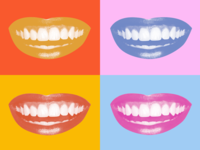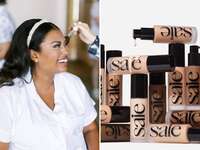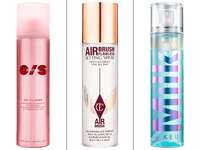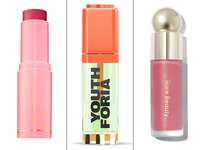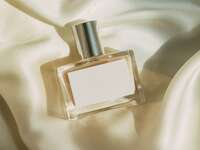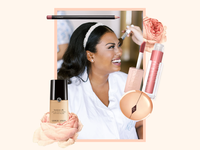How To Get Clear Skin Overnight Before Your Wedding (Yes, Really!)
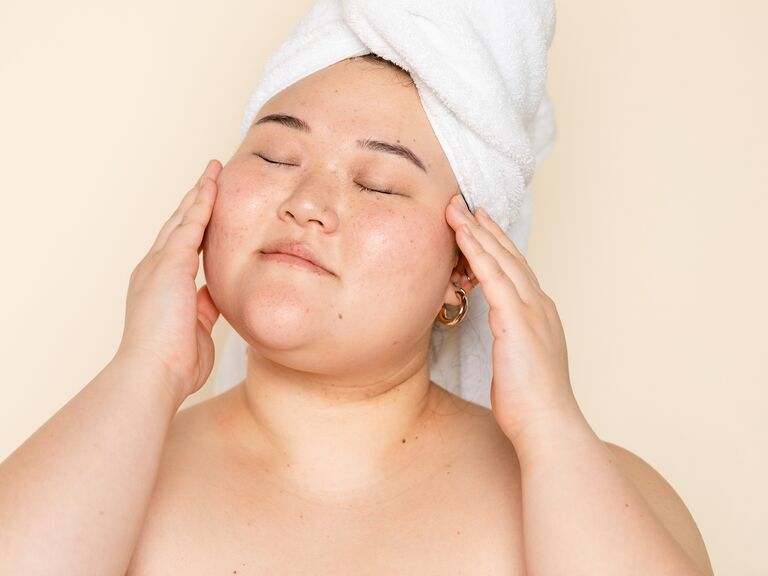
It seems like a cannon event to get an unexpected pimple right before an important occasion. I've spent many nights panic scrolling for last-minute "how to get clear skin overnight" solutions on Google and TikTok, slathering all kinds of clear skin products and DIY remedies on my face in hopes that they will magically disappear (in retrospect, I now know it's not a good idea to layer random active ingredients willy-nilly). Unlike other canon events, though, this one can be interfered with.
While over-the-counter retinols and prescriptions like Accutane work wonders, these are also long-term solutions that require consistency, time and patience. So, how can you get clear skin naturally at home, like, tomorrow? Whether it's for your own wedding, a bachelorette weekend, a date night or anytime you want to look and feel you're best, we went straight to the expert. I consulted with Vanessa Coppola, DNP, a Doctor of Nursing Practice and board-certified nurse practitioner specializing in facial aesthetics. She is also the owner of Bare Aesthetic Med Spa where she has successfully treated thousands of patients, and now she's sharing her secrets on how to get clear skin fast by working smarter, not harder. Follow these skincare tips to get better skin overnight:
In this article:
- Help! Can I Get Clear Skin Overnight?
- How to Clear Skin Fast: Dos and Don'ts
- How to Clear Skin Naturally At Home
- Clear Skin Products You Can Rely On
Help! Can I Get Clear Skin Overnight?
Yes, there are ways to treat and help clear skin overnight. Treating an angry blemish overnight can feel intimidating and uber-frustrating, but luckily there are a few steps you can take that can help drastically minimize and soothe your pimple as much as possible.
However, I want to level with you because, while these tips can make a significant difference, there is no magic wand for making an unwanted blemish disappear, especially, as Coppola notes, for those with more severe skin conditions that ultimately require long-term treatment. "If you are currently suffering from certain skin conditions such as redness or rosacea, skin discolorations such as melasma or sun damage, or acne-prone skin with breakouts, blackheads, and/or whiteheads, you will not likely be able to clear your skin completely overnight," she says. "These are conditions that require a treatment plan and maintenance care and typically take weeks, if not months, to clear your skin. Since these types of conditions don't appear overnight, it will likely take more than 24 hours to effectively treat them." If you're experiencing any of these issues, be sure to consult with a dermatologist or physician.
How to Clear Skin Fast: Dos and Don'ts
There is hope, though. Coppola mentions that there are some simple do's and don'ts to help you achieve clearer, brighter, and more hydrated skin overnight for your big day, and she's sharing them with us (and you!):
DO: Get Enough Sleep
"There is a reason we call it beauty sleep! Nothing will help your skin look radiant and beautiful right before your wedding day more than a good night's sleep," Coppola says, noting that adequate sleep helps our skin repair and renew itself, looking fresh and vibrant. "When we sleep well, our bodies produce human growth hormone, which helps our skin repair itself, and melatonin, which acts like an antioxidant to protect our skin from free radicals that can be damaging. We also produce collagen when we sleep, allowing our skin to become supple and retain moisture."
DO: Use a Bio Cellulose Mask or Sheet Mask with Water or Hyaluroninic Acid
"This will help to soothe and clam the skin and draw in moisture, helping the skin stay healthy, clear, and vibrant." Coppola's personal favorite? The SkinCeuticals Biocellulose Restorative Sheet Mask, but we'll talk more about that below.
DON'T: Try New Products The Night Before the Wedding
"We often see patients who want to try a new radical procedure right before their wedding, don't succumb to this desire!" Coppola tells us. "This is not the time to risk a breakout or reaction to something you have not tried before. Stick to your regular skincare routine."
DON'T: Pop A Pimple.
Not popping your pimple isn't something you want to hear, but it may be something you need to hear. "Everyone dreads a new pimple popping up just before their big day, but don't pop it," explains Coppola. "Popping a pimple can cause it to become more inflamed and swollen right before the wedding, as well as introduce bacteria deeper into the skin. If possible, see your aesthetic provider, who can give you a cortisone shot before the wedding. If not, leave it alone. This is the time for a good concealer, not "at home dermatology"."
How to Clear Skin Naturally At Home
Like I said, an unexpected pimple just a few days before your wedding or any big event can cause you to panic (been there, done that). "First and foremost, you want to make sure you take a deep breath, practice mindful meditation, and get a good night's sleep," says Coppola. "All these practices will help you stay calm and focused, which will in turn help calm your skin."
- Using a silk pillowcase is a helpful trick to keep your skin clear before your wedding day.
- Use a gentle pH balanced cleanser, and make sure your skin is hydrated.
- Stick to your regular skincare routine and don't try any new products!
- Avoid touching your face, as this can contribute to breakouts.
- Eat a light meal the night before and avoid alcohol and salty foods, as they can dry your skin and cause swelling.
- Use a Bio-Cellulose mask the night before and the morning of. For even better results, put the mask in the refrigerator for a cooling depuffing effect.
- Stay hydrated and drink lots of fluids.
- Remember to wash off all of your makeup from the day so that you go to bed with a clean face.
Clear Skin Products You Can Rely On
So now that you know how to handle a pimple 9-1-1. Here's a few holy grail products from Coppola and some of our team members here at The Knot, that you can quick ship right to your door.
1. For Sensitive Skin: SkinCeuticals Biocellulose Restorative Sheet Mask
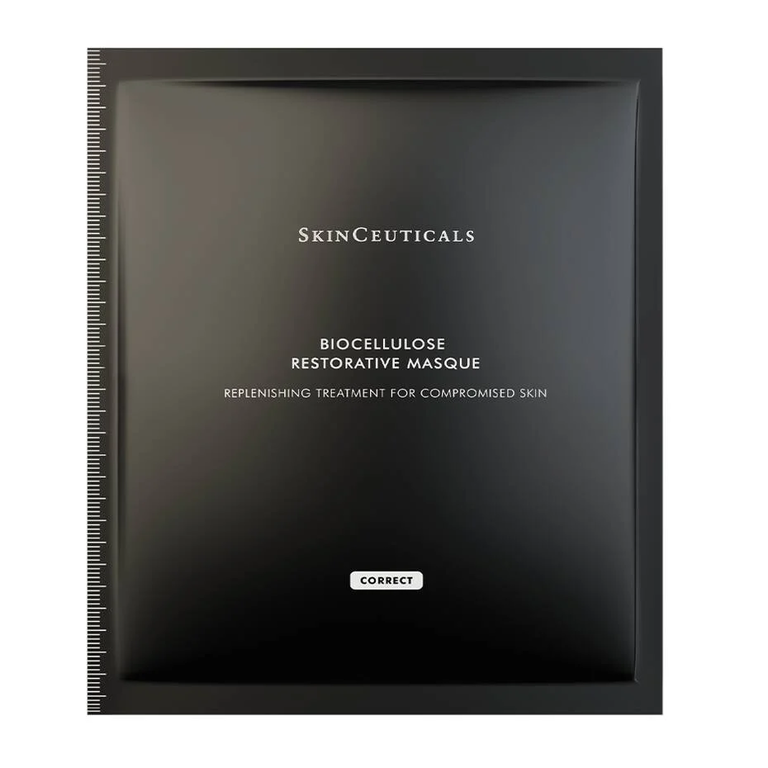
What it is: A healing, replenishing sheet mask using special bio-fibers infused with heat-reducing water to cool and soothe irritation.
Why it works: "I am absolutely in love with this sheet mask! I use this on my patients after many procedures, such as lasers, microneedling, and energy-based treatments," says Coppola. "It instantly calms and hydrates the skin. Its main ingredient is water, so it's virtually non-reactive. I use them chilled, and they feel heavenly. I leave it on my patients skin for 10 minutes, and their skin is instantly calmed and refreshed."
2. For Whiteheads: Hero Cosmetics Mighty Patch Original Acne Pimple Patches

What it is: Mighty Patches are hydrocolloid stickers that pulls out the "gunk" from whiteheads and visibly flattens and soothes pimples over the period of 6 to 8 hours - No popping necessary. It's chemical-free, allergy tested, and great for sensitive skin
Why it works: All I can say is…where were these when I was in high school?! Thanks to the medical-grade hydrocolloid, a fluid-absorbing gel, my pimples are always less red and irritated. It's one of the only ways to keep myself from picking or popping a pimple. Plus, they are so satisfying to remove. (hey, it's the truth.)
3. For Excess Oil: Dr. Dennis Gross Skincare DRx Blemish Solutions Clarifying Mask with Colloidal Sulfur
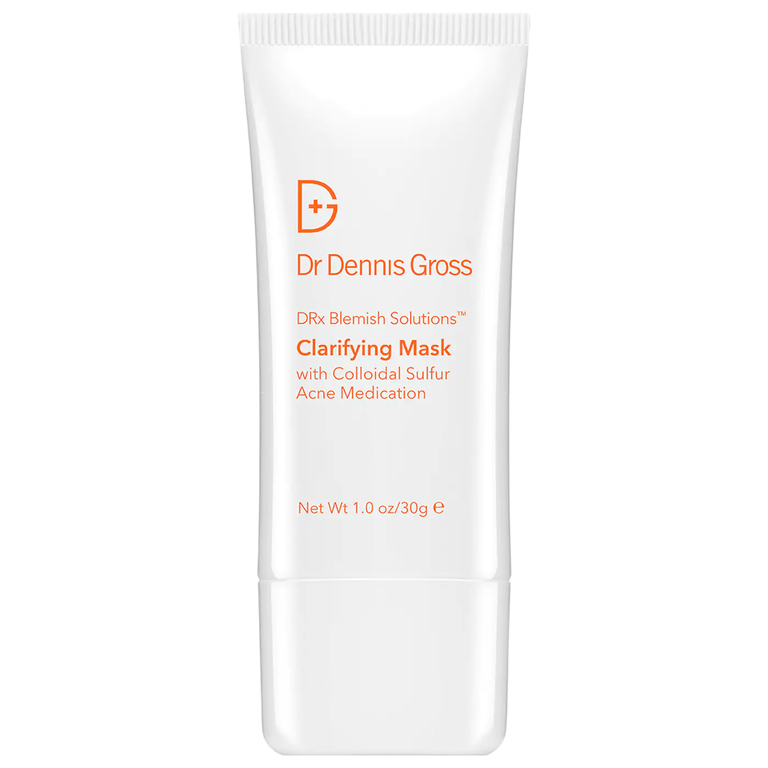
What it is: An overnight acne medication that treats blackheads and pores while absorbing excess oil. Psst: It can also be used as a spot treatment or even as a primer under makeup.
Why it works: The mask uses kaolin clay base to draw out impurities while colloidal penetrates the skin to neutralize acne-causing bacteria. It's also formulated with etracts like prickly pear, willowbark, and Vitamin A to reduce inflammation, minimize pores and reduce future breakouts. "If i have something thats popped, this is my other go to," says The Knot's TikTok Specialist, Alli Kennon. "t really helps spot treatment without drying out the skin!"
4. For Minimizing Pores: Kiehl's Rare Earth Deep Pore Minimizing Clay Mask
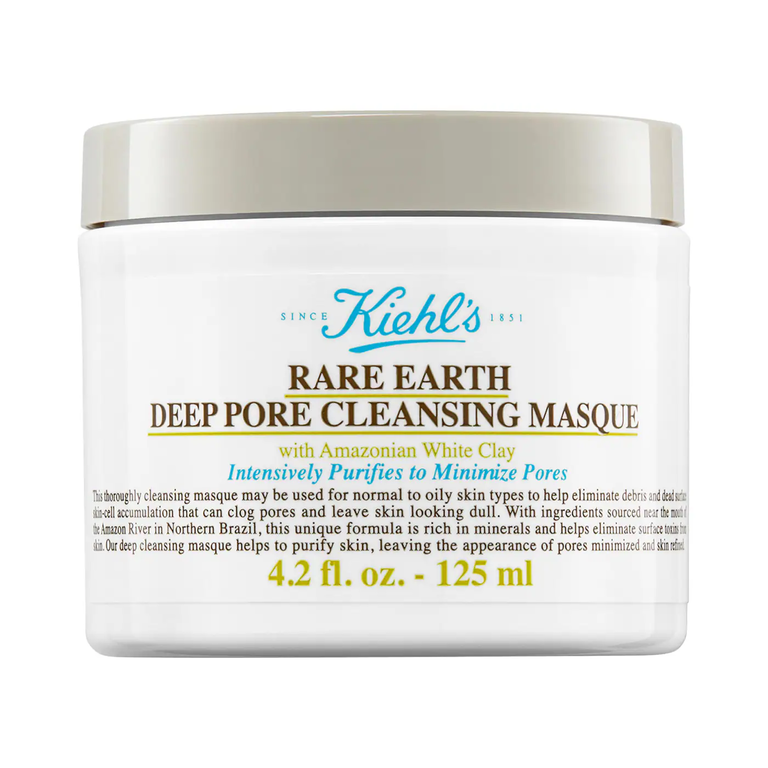
What it is :A 10-minute clay face mask that purifies skin and minimizes the look of pores.
Why it works: A favorite of The Knot's Social Media Coordinator, Kerre Jo Lattanzio, the Kiehl's clay mask is infused with both aloe and Amazonian White Clay to helps draw out dirt, toxins and impurities to smooth and refine skin texture. Just apply a thin layer to damp skin and give yourself a little R&R for ten minutes while the mask works its magic.
5. For Blackheads: Olay Clay Charcoal Facial Mask Stick
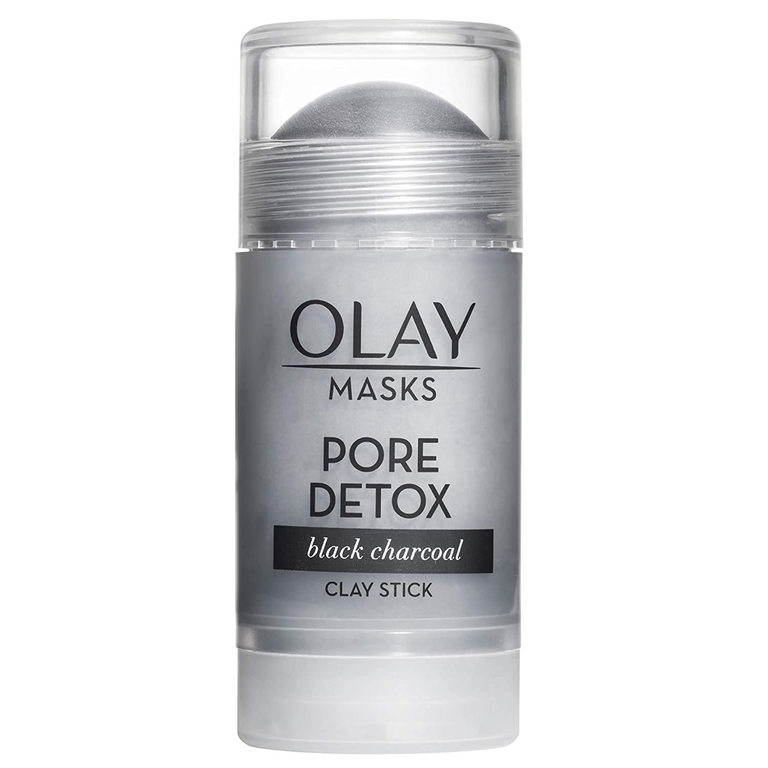
What it is: A detoxifying clay mask in an easy-to-use, convenient stick formula.
Why it works: Charcoal and clay are a power couple when it come deep cleaning blackheads and large pores. "This olay mask rolls on which is 100 in my book and it's only $10!" says Lattanzio. Plus, the stick formula makes it easy for destination wedding travel.
6. For Acne: Clean & Clear Advantage Spot Treatment with Witch Hazel
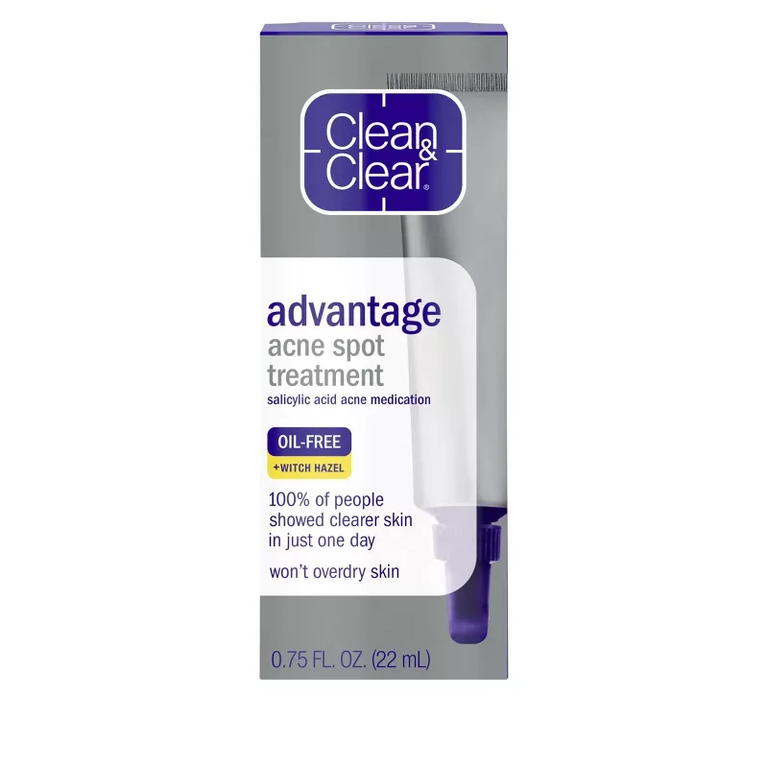
What it is: An oil-free cream treatment formulated with salicylic acid and witch hazel to help visibly reduce the signs of acne.
Why it works: Clean & Clear's reatment has been a cult-favorite spot treatment for years, including that of The Knot's Social Media Coordinator, Meghan Ho. "Clean & Clear's acne spot treatment has been my go-to product literally since middle school," she says. "As soon as you apply it to any problem areas you'll feel a tingly, cooling sensation so you know it's working, and not to mention it works insanely fast."
7. For Clogged Pores: Josh Rosebrook's Cacao Antioxidant Purifying Facial Mask
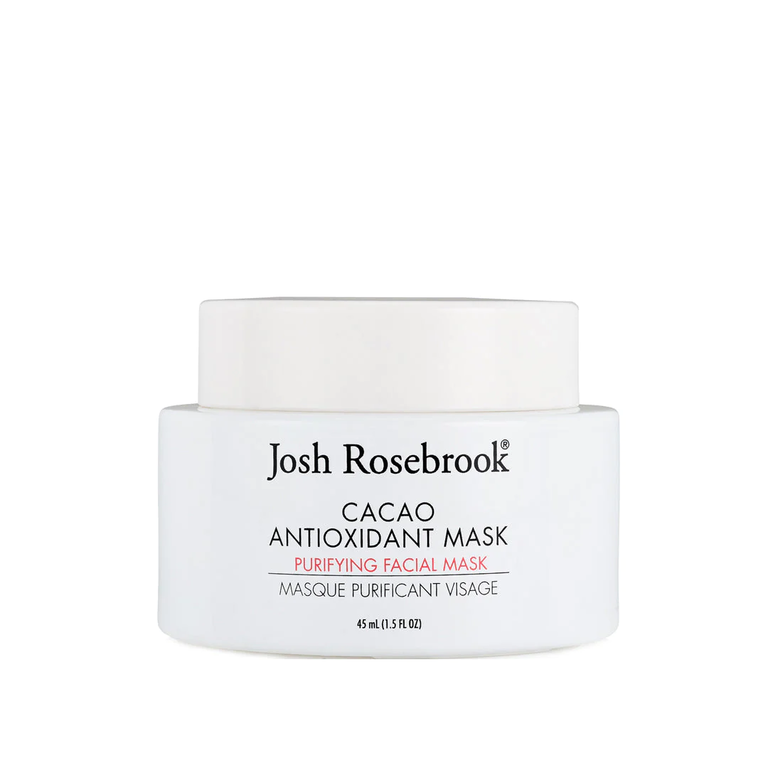
What it is: An activating facial mask that rejuvenates and purifies the skin through powerful antioxidant and phytonutrient plant synergies.
Why it works: "I hate to look at my skin and see big ole pores across my T-zone, but I've discovered a product combo that really works," says Taliaferro. "My 1-2 punch starts by using Josh Rosebrook's Cacao Antioxidant Purifying Facial Mask in the shower, which pulls out all the oil and crud from my pores. Warning: your face will appear red after using this mask, but it's supposed to happen and not an allergic reaction."
8. For Dull Skin: Pai Skincare Virtuous Circle Kukui and Jojoba Bead Eco-Bead Exfoliator
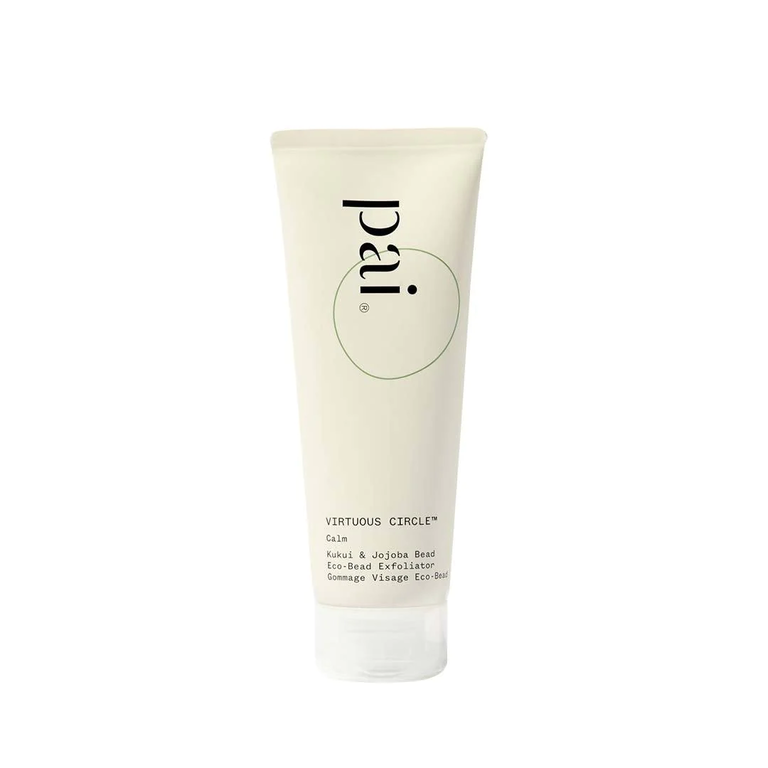
What it is: A brightening, gel facial exfoliator for sensitive and acne prone skin.
Why it works: "A few minutes after I use the Josh Rosebrook's Cacao Antioxidant Purifying Facial Mask, I massage Pai's Virtuous Circle Exfoliator into my dry skin, making little circles across my pores with the beads," says Taliaferro. "Then I wet my fingers and massage my skin again, using the moisture to turn the beads into a milky consistency. After giving my face a good final rinse, my pores are completely empty and my skin is smoother and softer than ever."
9. For Redness: Peach Slices Redness Relief Azelaic Acid Serum
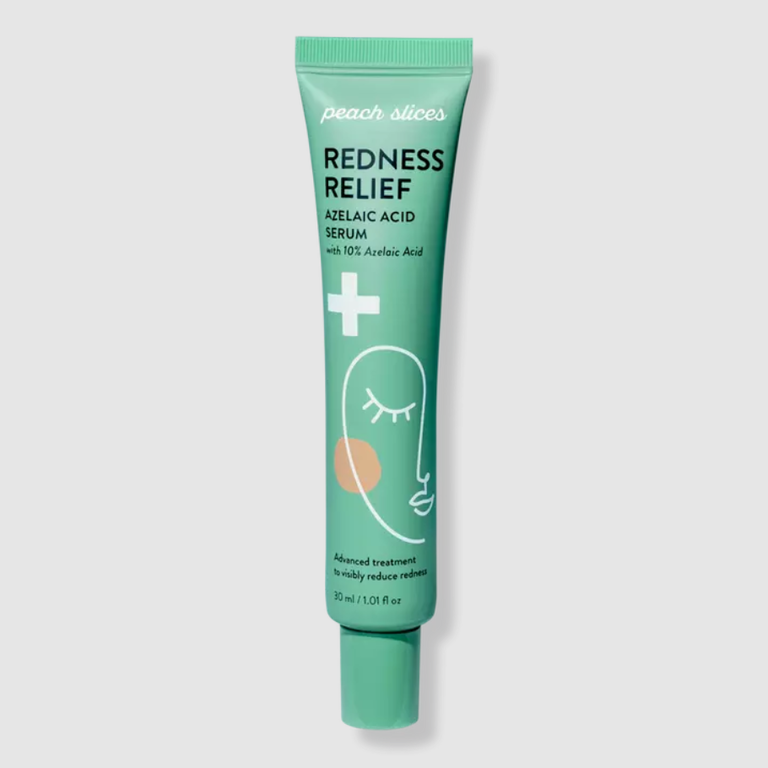
What it is: An advanced treatment that actively reduces the appearance of redness and signs of irritation.
Why it works: The vegan and cruelty-free redness treatment is full of clean ingredent sincluding 10% azelaic acid which is known to treat signs of rosacea and blemishes as well as green algae, panthenol, allantoin, broccoli extract and rhodmytrus extract to help restore the skin barrier and combat inflammation.


